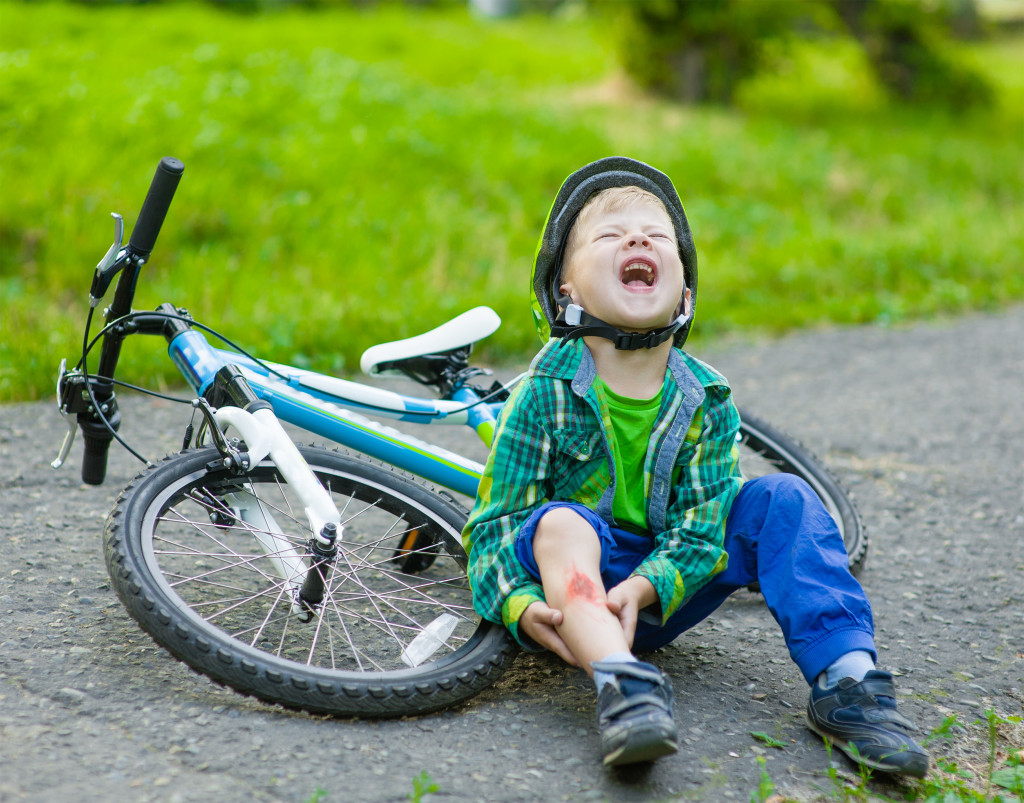- Balance problems in children can affect daily activities, school performance, and overall well-being.
- Causes include inner ear problems, vision impairment, muscle weakness, and neuropathy.
- Health risks may include falls, injuries, and difficulty with daily activities.
- Treatments may include physical therapy, medication, surgery, or referral to a specialist.
- Home remedies such as encouraging physical activity and creating a safe home environment can also help.
As a parent, you always want to ensure your child is healthy and thriving. But what happens when your child starts experiencing balance problems? Balance problems can affect your child’s motor skills and may lead to health risks if left untreated.
This blog post will discuss the top causes of balance problems in children, its potential health risks, and the treatments that can help your child overcome this condition.
Causes
While it’s normal for kids to trip or fall occasionally, persistent difficulty with balance could be a sign of an underlying problem. Problems with balance may be due to several factors. Here are the causes of loss of balance in children:
Inner Ear Problems
The inner ear plays a crucial role in the body’s sense of balance. In some children, problems with the inner ear could contribute to balance disorders. Infections such as otitis media, inflammation of the middle ear, or labyrinthitis, inflammation of the inner ear, can cause temporary symptoms of dizziness and imbalance.
Additionally, disturbances of fluid levels in the inner ear can cause vertigo (a sense of spinning), dizziness, nausea, and balance loss. Such issues can occur due to trauma, genetic factors, or prolonged ear infections.
Vision Impairment

Visual cues are essential for maintaining balance. Children with difficulty with vision and depth perception may experience trouble finding balance. Vision impairment can be caused by eye problems such as astigmatism, strabismus, or amblyopia.
It’s essential to have your child’s vision checked regularly. You should speak with your child’s pediatrician if you notice signs of visual impairment such as squinting, rubbing the eyes, headaches, or difficulty reading or seeing up close.
Muscle Weakness
Muscle weakness in the legs or trunk can interfere with a child’s balance. Children who are not active or have sedentary lifestyles may suffer from muscle weakness. Muscle weakness can also result from conditions like cerebral palsy or muscular dystrophy.
It is essential to encourage your children to stay active. Regular exercise will help improve muscle strength, coordination, and overall balance.
Neuropathy
Neuropathy is a broad range of medical conditions affecting the peripheral nervous system. It is the most common cause of loss of balance in children. Neuropathy can cause damage to the sensory and motor nerves, which results in difficulties with coordination and balance.
The good news is that children can undergo a neuropathy treatment that can help improve their balance. The treatment usually involves physical therapy and medications to manage symptoms such as pain or numbness. This will help your child regain their balance and lead a more active lifestyle.
Health Risks
Balance problems are often accompanied by other symptoms such as dizziness, vertigo, and nausea. They can also make your child more prone to falls and other accidents, leading to injuries like cuts, bruises, and fractures.
Furthermore, persistent balance problems may affect your child’s ability to perform daily activities such as walking, running, and climbing stairs. All these potential health risks highlight the importance of addressing balance problems early on, even if they seem mild at first.
Treatments

The good news is that many different treatments are available to help your child manage balance problems, depending on the underlying cause. For developmental delays, your child may benefit from physical and occupational therapy to improve motor skills and coordination.
For ear infections, your pediatrician may prescribe antibiotics or recommend surgery to address the condition. Medication adjustments or referral to a specialist may be necessary in some cases. Whatever the treatment plan, it’s important to work closely with your child’s healthcare team to ensure that they receive the most appropriate care.
Home Remedies
Alongside professional treatment, there are also various home remedies that you can do to help your child manage their balance problems. For instance, you can encourage your child to participate in activities that promote balance and coordination, such as dancing, martial arts, and gymnastics.
You can also create a safe home environment by removing tripping hazards, installing handrails on stairs and in the bathroom, and providing your child with supportive footwear. Additionally, you can explore natural remedies like herbs and supplements, but always consult with your child’s healthcare provider before trying any new treatment.
The Bottomline
Balance problems can be challenging for both you and your child, but with early intervention and the right treatments, it can be managed. Always consult your child’s healthcare provider for a personalized approach, and don’t hesitate to reach out for support when needed. Together, you can help your child find balance and enjoy life to the fullest.

















